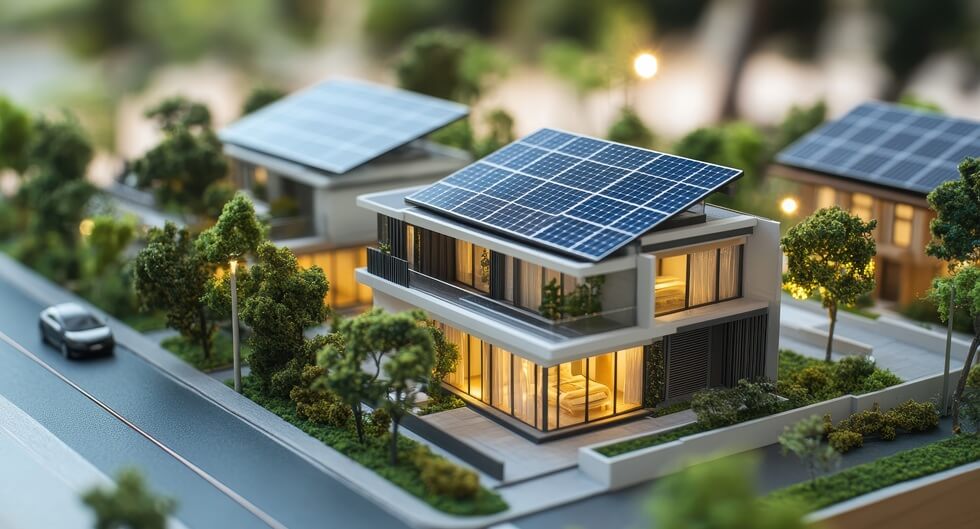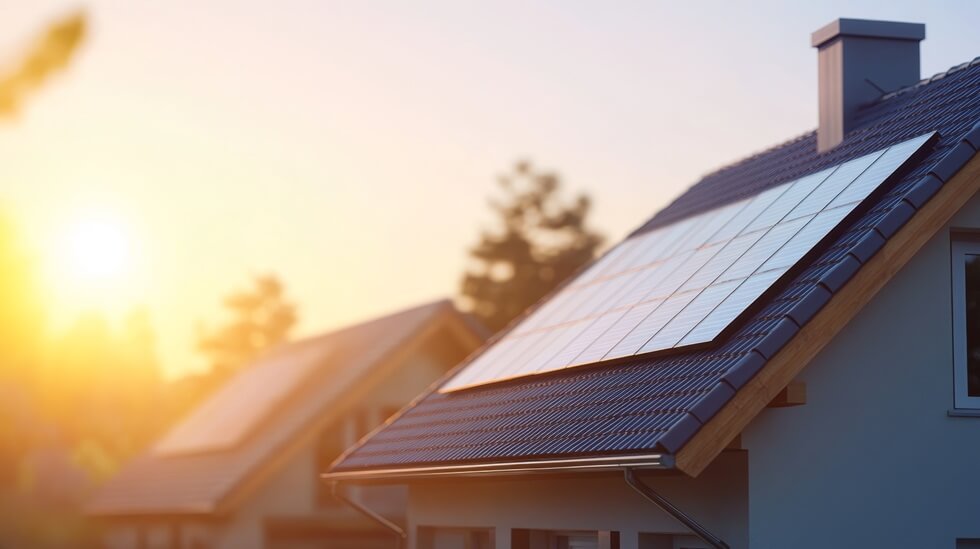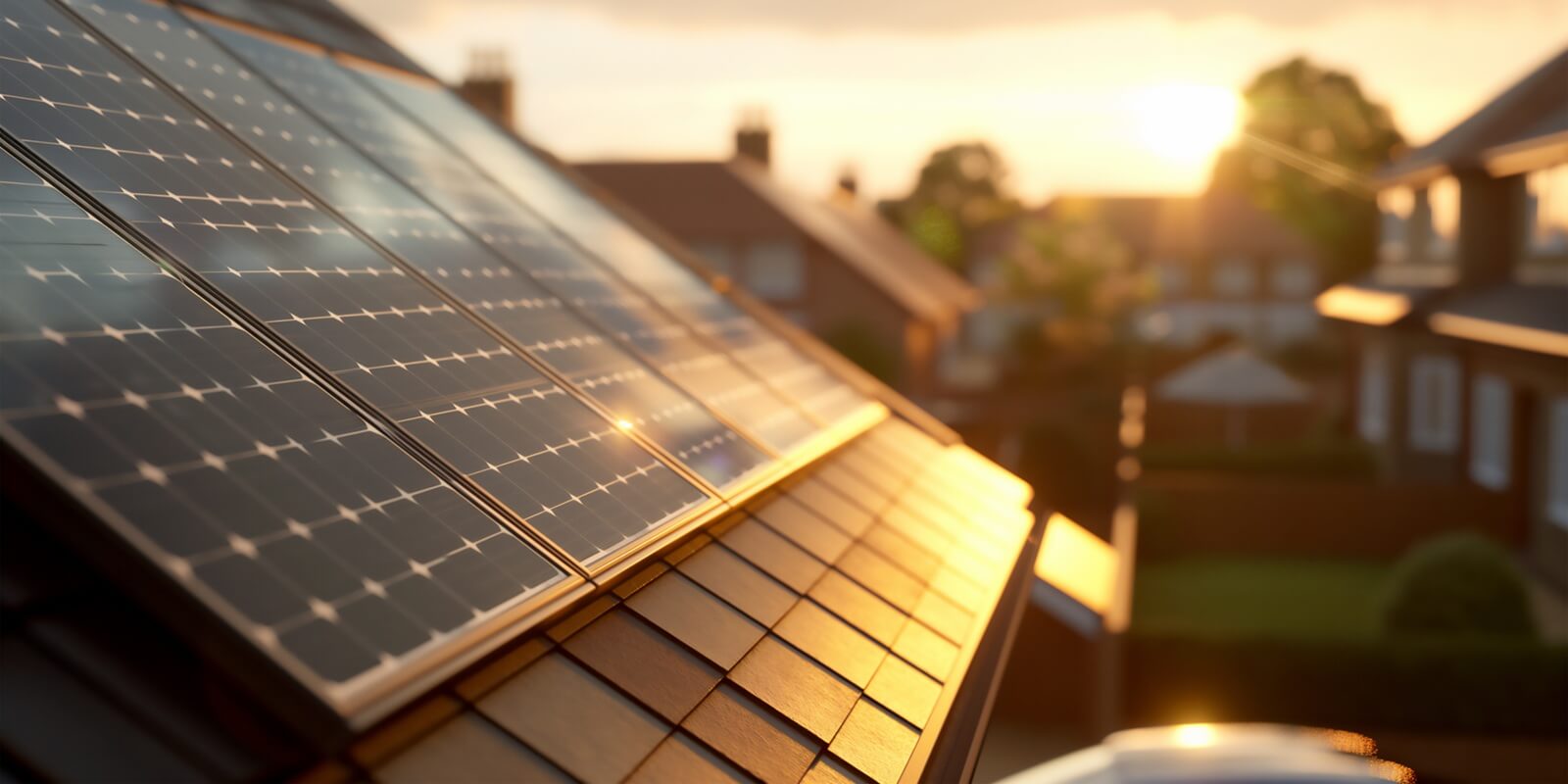Solar panels can reduce a home’s electric bill, decrease its carbon emissions, and improve the collective environmental conditions in which all humans exist each day. While residential solar panels make renewable energy more accessible, homeowners who use a set-it-and-forget-it approach to their system may be missing out on the full range benefits that solar can provide.
Homeowners who want to maximize their solar panel efficiency have several options, which will not only extend the life of the system in some cases but also increase the potential cost savings generated by this clean energy source. Maximizing solar efficiency does not have to mean a significant increase in time spent maintaining and attending to the array, either.
With a few simple strategies, you can keep your solar panels working at their peak efficiency whenever possible.
How Residential Solar Panel Efficiency Is Measured
Solar panel “efficiency” refers to how much energy a panel can generate from the solar radiation it receives. Contrary to popular belief, a solar panel does not absorb all of the energy from the sun and convert it into electricity. Rather, the sun shines on the panel, producing a reaction that transforms some of the sun’s energy into an electrical current that is fed to the home, while the rest of the radiation from the sun dissipates (e.g., through heat).

The most efficient solar panels currently convert around 20% of the sun’s energy into electricity. This is a significant difference from early panels, which could only capture around 6% of that power. While solar panels may lose a percentage point or two of efficiency as they age, homeowners who take care of their system can keep this number as high as possible for the life of the array.
Maximizing Residential Solar Panel Efficiency
Homeowners who want to keep their panels in top shape and producing as much energy as possible have multiple options. Some require post-installation attention, while others need to be undertaken during installation.
Keeping Panels Clean
After installation, be mindful that solar panels rely on radiation from the sun coming in contact with the photovoltaic cells within the panel. If a panel is covered in dirt, dust, pollen, leaves, or other outdoor debris, some cells will not receive solar radiation, making it unable to produce its maximum possible output. Keeping solar panels clean maximizes solar panel efficiency—and reduces the potential for harm to the panels over time.
Removing Sources of Obstruction
Before and after installation, note that items such as fallen leaves on the panels are not the only source of obstruction. Homes with nearby trees and other tall objects may struggle to achieve maximum efficiency from their solar panels at all hours of the day, as these obstructions may block the sun during certain hours.
Trim trees before and after installation, or remove them entirely to grant panels clear access to solar radiation. Be strategic about parking large vehicles (RVs, farm equipment, etc.) away from the path of the sun as it relates tot your array.
Placing the Panels Strategically
Before installation, your installer should assess the sunlight exposure to your home’s roof. Solar panels work at their best when they have uninterrupted access to solar radiation. While natural obstructions such as trees are one source of interference, also consider where the panels are placed.
In general, placing panels on a south-facing roof is ideal; however, if the home is not oriented in a way in which this is possible, panels should be placed according to the home’s needs. For instance, panels on the east side will help to offset energy use during peak hours.
Investing in a Battery
During the brightest hours of the day, solar panels may produce more energy than the home uses. Maximizing solar panel efficiency often includes using a battery system, which can store this excess energy to draw on later —such as at night, when the panels are dormant.
Using a System Monitor
A solar panel system monitor is a remote way of understanding how panels are working. Whether a home’s monitor is hard-wired to the system or uses Bluetooth, it can provide valuable insights, such as if panels are not performing at their peak. This data allows homeowners to maximize solar potential by discovering any issues or inefficiencies right away so they can be addressed.
Conducting Preventive Maintenance
Solar panels are designed to last a long time outside in the elements, but a little preventive maintenance will still be beneficial. Maintenance keeps solar panels functioning at their peak by addressing minor problems, allowing the home to benefit from the greatest solar efficiency.
Homeowners can undertake this maintenance themselves, or they can trust a professional team. Even if nothing appears to be wrong with the panels, a check-up once per year is advisable.

Get the Most Out of Your Residential Solar Panels With Energy Select
Solar panels are now more efficient than ever, but homeowners would still do well to take care of their array, helping it continue to produce at its maximum for as long as possible. Whether you are due for regular maintenance or you simply need suggestions to boost your system’s performance, be sure to choose a solar company you can trust. Contact Energy Select to schedule a visit.


